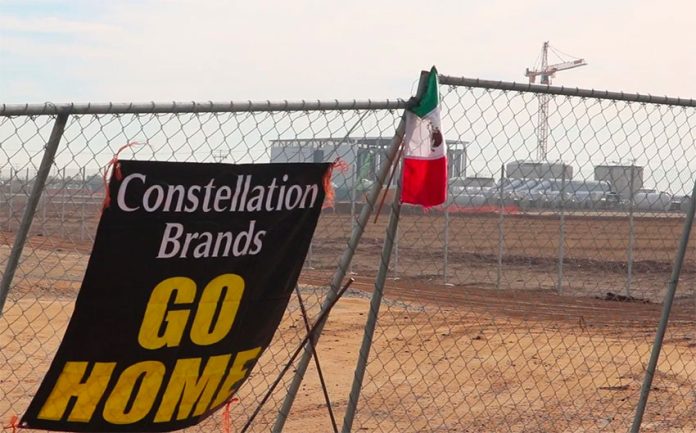President López Obrador announced that the vote to determine the fate of a brewery being built by U.S. beverage producer Constellation Brands in Mexicali will be conducted on March 21 and 22.
The president announced the vote last week to much opposition from the company and even the U.S. Embassy, which said a vote would not be good for Mexico.
“It is binding because the Ministry of the Interior has the faculties for such a proposition. It’s actually not called a consultation, it’s called a participatory exercise,” he said at his morning press conference on Monday.
Farmers and other residents of the area have opposed the construction of the brewery since 2016, claiming that it will put a strain on the region’s water supply.
The president said that the federal government will set up information tables to apprise the public of the permits the company has received and who granted them.
“We’re going to announce the opinions in favor and those against. We’re going to explain how the company received all of its permits for construction,” he said.
He denounced that his administration is being subjected to pressures by businessmen and financial groups that view the public consultation as a threat to the completion of the project.
“We want the citizens to be those who decide, we want the public to decide,” he said, adding that the government will not issue permits for other projects like the brewery, which require large amounts of water, in the north of the country, where the resource is scarce.
Constellation Brands, which exports Corona and other beer brands to the United States, has said that the plant “will not affect, at any moment, the availability and supply of water in the region.”
The company, which has breweries in other parts of the north of the country, has said that the Mexicali plant will be ready at the end of 2021, after several setbacks due to local opposition to the project.
Construction is currently around 70% complete and the company has invested around US $900 million so far.
“We have to find a balance,” the president said. “The health of the people comes first, we can’t leave people without water. If there are other options for water for the people and water for the company, they can go ahead; if not, it can’t be done. This is the criterion, but both can be done when we look for options,” he said.
The company responded to the president by saying that it does not have the time to carry out a public consultation and that with such an uncertain future, it might have to look elsewhere for such a project.
“Although we consider that the best for our company and for Mexico is that our emblematic brands continue to be produced in Mexico, if we must expand and can’t do it in the country, we might not have any other option than to look elsewhere for production,” said company president Daniel A. Baima in a letter to López Obrador.
“The company no longer has the time to carry out a public consultation in which its future in Mexico continues to be uncertain. We hope to be able to count on your valuable support in order to put an end to the delays and underwrite this historic agreement,” he said.
The public was set to vote on the project last year until electoral authorities in Baja California reversed the decision to conduct the consultation in March of 2019.
Source: Zeta Tijuana (sp)
